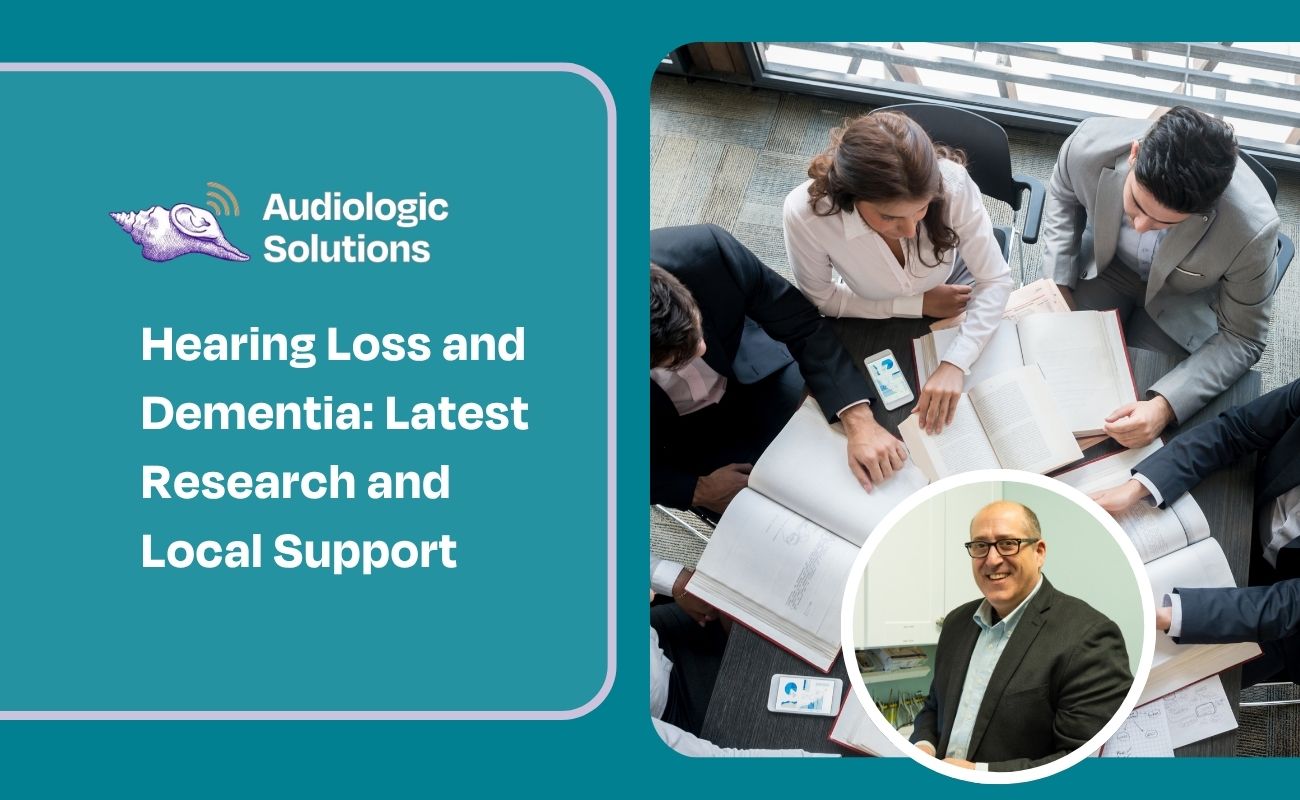Hearing Loss and Dementia: Latest Research and Local Support


The connection between hearing loss and cognitive decline has captured the attention of researchers worldwide. Recent studies continue to strengthen evidence that untreated hearing loss may accelerate cognitive decline and increase dementia risk. Understanding this relationship helps individuals make informed decisions about their hearing health and take steps to protect their cognitive function.
Current research has produced some remarkable findings. A Johns Hopkins study analyzing data from over 2,400 older adults found that people with moderate to severe hearing loss showed a 61% higher prevalence of dementia compared to those with normal hearing. What made this study particularly valuable was its approach—researchers conducted testing in participants' homes rather than requiring clinic visits, capturing a more representative sample of the population.
In one of the largest studies to date, analyzing data from 573,088 people, researchers found that hearing loss increases dementia risk by 7% overall. The risk varied significantly based on severity: mild hearing loss doubled dementia risk, moderate loss tripled it, and severe hearing impairment increased the risk five-fold.
But here's where things get interesting. The same Johns Hopkins study found that hearing aid use was associated with a 32% lower prevalence of dementia among participants with moderate to severe hearing loss. This suggests that addressing hearing loss might play a protective role in cognitive health.
The relationship between hearing and cognition involves several pathways. When people are hard of hearing, they spend more energy listening, and that energy comes at the expense of other cognitive functions. Think of your brain as having a limited capacity for processing information. When hearing loss forces it to work overtime to decode sounds and speech, fewer resources remain for memory, attention, and problem-solving.
Brain scans reveal that hearing loss may contribute to faster brain tissue loss, particularly in areas responsible for processing sound and memory. When these regions receive less stimulation due to hearing loss, they may begin to shrink more rapidly than normal.
Social factors matter too. Hearing loss contributes to social isolation—you may not want to be with people as much, and when you are, you may not engage in conversation as readily. This withdrawal from social interaction can accelerate cognitive decline, as social engagement helps keep our minds sharp.
The encouraging news is that hearing loss represents a potentially modifiable risk factor for dementia. Unlike many other risk factors for cognitive decline, hearing loss can often be effectively treated with hearing aids and other interventions.
Studies show that people who use hearing aids to manage their hearing loss are less likely to develop dementia. Hearing aid use was also linked to fewer memory and thinking problems independent of dementia. The key phrase here is "early intervention"—managing hearing loss works best when you start doing it early on.
Modern hearing aids do more than simply amplify sounds. Today's technology includes sophisticated features that can reduce the cognitive burden of listening. The Phonak Infinio platform uses dual-chip architecture to process speech and noise separately, while the Oticon Intent employs 4D sensor technology that adapts to your listening intentions. The Starkey Edge AI processes sounds using neural networks trained on millions of sound samples, helping to deliver clearer speech with less effort.
Many people wait years before addressing hearing loss, often because the changes happen gradually. Hearing aid users wait an average of 10 years before getting help, but during that time, communication becomes more difficult and health risks increase.
We recommend comprehensive hearing evaluations for adults over 50, even if they don't notice obvious problems. During an evaluation, we assess not just your ability to hear different sounds, but also how well you understand speech in various environments. This gives us a complete picture of your hearing health and helps us identify areas where intervention might be beneficial.
When we fit hearing aids, we use Real Ear Measurements to verify that your devices provide the optimal amount of amplification for your specific hearing loss. This precision fitting helps ensure you get maximum benefit from your hearing aids, potentially supporting both your communication abilities and cognitive health.
Our practice takes a comprehensive view of hearing healthcare. We consider your lifestyle, communication needs, and overall health goals when developing treatment recommendations. For some patients, this might include hearing aids. For others, it could involve assistive listening devices, communication strategies, or hearing protection.
We also offer specialized treatments for related conditions. Tinnitus, for example, can impact both hearing and cognitive function. Our Lenire tinnitus treatment device provides a new option for managing these symptoms, which may contribute to overall brain health.
The adjustment period for hearing aids varies from person to person. Some people adapt quickly, while others need more time. We provide ongoing support throughout this process, with regular follow-up appointments to fine-tune your devices and address any concerns.
While we can't guarantee that treating hearing loss will prevent dementia, current research suggests it may play a protective role. What we do know is that addressing hearing loss can improve communication, reduce social isolation, and enhance quality of life—all factors that support healthy aging.
The research continues to evolve, but the message is clear: hearing health matters for overall brain health. If you've noticed changes in your hearing, or if you simply want to be proactive about protecting your cognitive function, we encourage you to schedule a comprehensive hearing evaluation. Our team can assess your hearing health and discuss options that may support both your communication needs and long-term cognitive wellness.
Don't wait to address potential hearing concerns. Early intervention offers the best outcomes for both hearing and cognitive health. Contact our practice today to schedule a comprehensive hearing evaluation with one of our experienced audiologists. Together, we can develop a personalized plan to support your hearing health and overall well-being for years to come.
We have 4 hearing care clinics in Rensselaer, Hudson, Saratoga Springs and Queensbury.